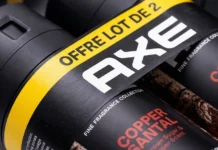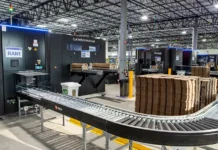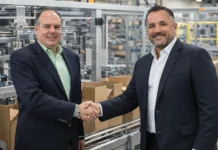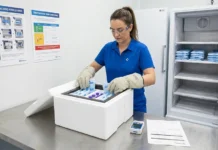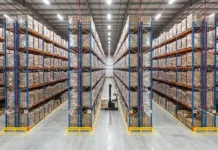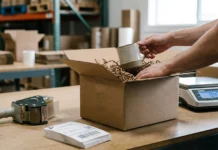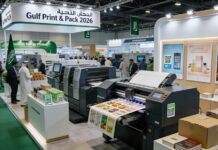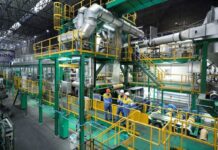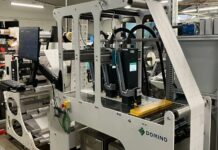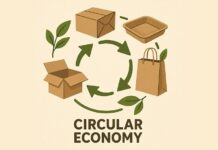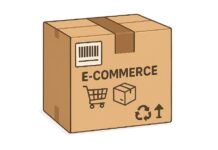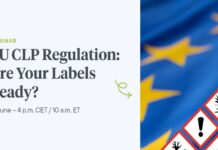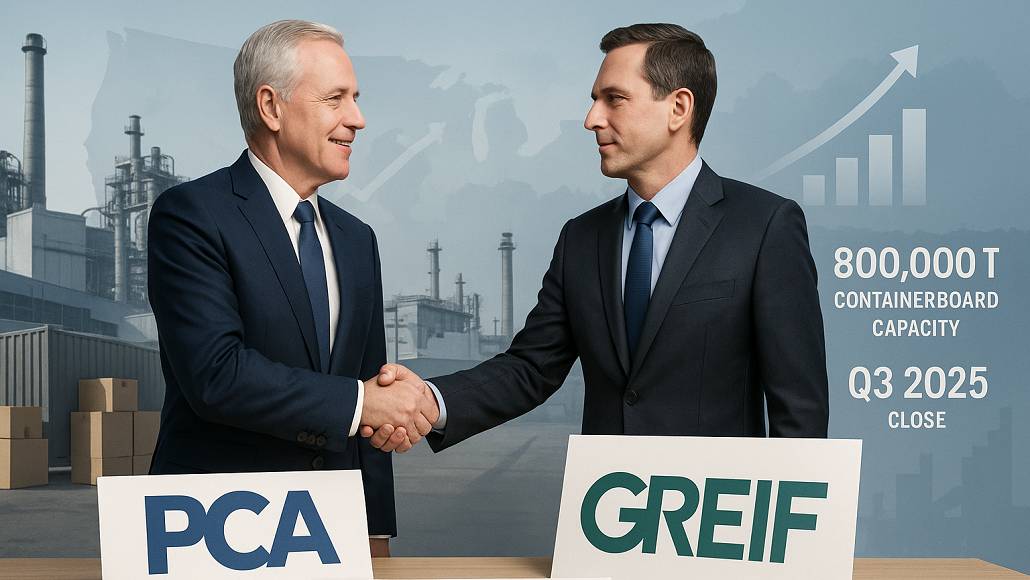PCA Acquires Greif’s Containerboard Unit for $1.8B
In a bold move that reshapes the North American packaging industry, Packaging Corporation of America – PCA acquires Greif’s containerboard business for $1.8 billion in cash. The transaction includes two paper mills and eight corrugated converting facilities strategically located across the U.S., and is expected to close by the end of the third quarter of 2025, subject to customary regulatory approvals. This acquisition significantly enhances PCA’s production capabilities, adding approximately 800,000 tons of annual containerboard capacity and raising the company’s total output to nearly million tons. The acquisition will make PCA the third-largest containerboard producer in North America by capacity, strengthening its competitive edge in the fast-evolving corrugated packaging landscape.
PCA Chairman and CEO Mark Kowlzan called the deal a natural extension of the company’s long-term strategic vision, stating that the assets complement PCA’s existing mill system and will support ongoing growth in the corrugated products segment. The company expects to achieve $60 million in annual synergies within two years, driven by mill integration, reduced transportation costs, product mix optimization, and improved operating efficiencies. Financing for the acquisition will consist of approximately $1.5 billion in new debt, supplemented by PCA’s existing cash reserves. The transaction is projected to bring PCA’s pro forma debt-to-EBITDA ratio to approximately 1.7x—still within a manageable range, preserving balance sheet flexibility while fueling expansion.
For Greif, the transaction marks a decisive pivot in its long-term corporate strategy. The company will use the proceeds to pay down debt and accelerate its focus on high-margin, non-cyclical businesses such as industrial packaging, sustainable fiber-based products, and specialty containers. Greif CEO Ole Rosgaard stated that the sale of its containerboard assets is fully aligned with the company’s Build to Last strategy, describing the divestment as a pivotal step to sharpen portfolio focus, improve capital efficiency, and invest in areas with higher growth and returns. The move signals Greif’s broader effort to reduce exposure to volatile paperboard markets and concentrate on more resilient sectors within its diversified packaging portfolio.
Investor response to the announcement has been optimistic, with Greif’s shares rising approximately 6% and PCA stock jumping nearly 8% on the news. Analysts see the transaction as a strategic win-win. PCA gains meaningful production scale and operational synergies that strengthen its vertically integrated platform, while Greif unlocks liquidity to pursue innovation and margin expansion in its core business lines. The $1.8 billion valuation represents a multiple of roughly 8.5 times Greif’s last twelve-month adjusted EBITDA for the business unit, and drops to about 6.6 times once expected synergies are realized—making it a financially disciplined transaction for PCA as well.
As with all large-scale acquisitions, the deal is subject to regulatory approval, including a mandatory review under the Hart–Scott–Rodino Antitrust Improvements Act. If the transaction is not completed by June 30, 2026, either party may terminate the agreement, though extensions are permitted under agreed terms. While some industry observers have raised questions about further consolidation in the packaging space, most analysts agree that the deal enhances PCA’s operational capabilities without materially harming market competition.
This acquisition comes at a time when packaging companies are racing to modernize their supply chains, improve margins, and meet growing demand from e-commerce and industrial clients. With heightened focus on sustainability, operational efficiency, and scalability, PCA’s move to acquire Greif’s containerboard business appears both timely and transformative. For Greif, it represents a clean exit from a capital-intensive segment and a redeployment of resources into higher-return categories. For PCA, it’s an opportunity to deepen integration, optimize mill operations, and serve its customer base more efficiently and profitably. If regulators approve the transaction without delays, the North American packaging industry could see a significant structural shift before year-end—one that sets the tone for further strategic realignments across the sector.




